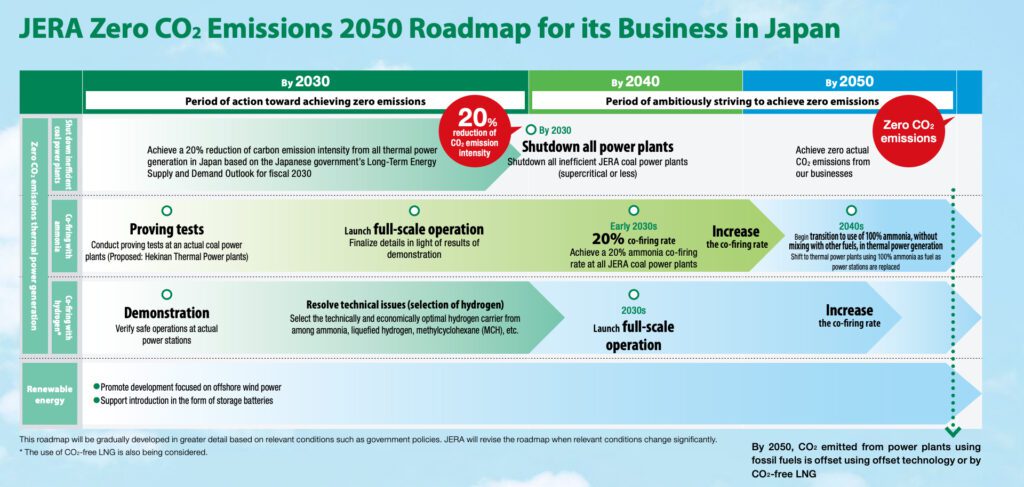The post JERA Kicks Off Hydrogen Co-Firing Pilot at LNG Power Plant appeared first on POWER Magazine.

JERA has received the Japanese government’s green light for a pilot project to demonstrate 30% hydrogen co-firing at an existing large-scale liquefied natural gas (LNG) thermal power plant by 2025. The project is Japan’s “first initiative to use a large amount of hydrogen as fuel in a large-scale commercial LNG thermal power plant,” the company said on Aug. 26.
Funding from Japan’s New Energy and Industrial Technology Development Organization’s Green Innovation Fund program will allow the company to kick off the project this October. JERA anticipates the five-year pilot will shed key insights on the practical use of hydrogen at existing LNG power plants when it ends in March 2025.
JERA said it will initiate the project with a feasibility study. Based on that study’s results, the company will build hydrogen supply facilities at the LNG thermal power plant. It will also install combustors capable of co-firing hydrogen and LNG in its gas turbines. Ultimately, the project will aim “to switch approximately 30% of the LNG used for electricity generation (by volume, equivalent to approximately 10% of heating value) to hydrogen by fiscal 2025,” it said.
If successful, the project will have major implications for the future of JERA’s fleet. JERA, which is a joint venture between TEPCO and Chubu Electric, owns and operates a sizable global LNG portfolio of five upstream projects, 20 fleet carriers, an LNG tank capacity that is equivalent to 30% of Japan’s tank capacity, and 11 LNG terminals in Japan. It also owns 27 thermal power stations in Japan, which have a total capacity of 70 GW, and another 30 power projects, including renewables, in more than 10 countries, which amount to about 9 GW.
In October 2020, the company issued a notable roadmap to achieve zero carbon emissions by 2050. While part of its roadmap envisions shuttering its entire 2.2 GW supercritical coal power generation fleet in Japan by 2030, the company is now also working to gradually introduce and increase the co-firing rate of ammonia at its ultrasupercritical coal plants to 100% by the 2040s.

Separately, JERA is also exploring how to safely co-fire hydrogen at its power plants. Its roadmap suggests the company is still gearing up to select the technically and economically optimal hydrogen carrier from an array of possible candidates, including ammonia, liquefied hydrogen, and methylcyclohexane. The roadmap calls for launch of “full-scale operation” at a thermal power plant by the 2030s. By 2050, it wants to offset all carbon dioxide emitted from power plants using fossil fuels with an offset technology or by “CO2-free LNG.”
Separately on Aug. 26, Kansai Electric Power Co. announced it had also received funding from the New Energy and Industrial Technology Development Organization’s Green Innovation Fund program for a six-year pilot project to realize hydrogen power generation.
Japan, the world’s first country to develop a national hydrogen strategy, is also one of only a few counties in the world to have an explicit goal for the use of hydrogen in the power sector. Current goals call for 1 GW of power capacity based on hydrogen by 2030, and 15 GW to 30 GW over the longer term. The country, notably, also envisages that hydrogen power costs should fall to JPY 17($ 0.16)/kWh and generation efficiencies of up to 57%, says the International Energy Agency.
—Sonal Patel is a POWER senior associate editor (@sonalcpatel, @POWERmagazine).
The post JERA Kicks Off Hydrogen Co-Firing Pilot at LNG Power Plant appeared first on POWER Magazine.